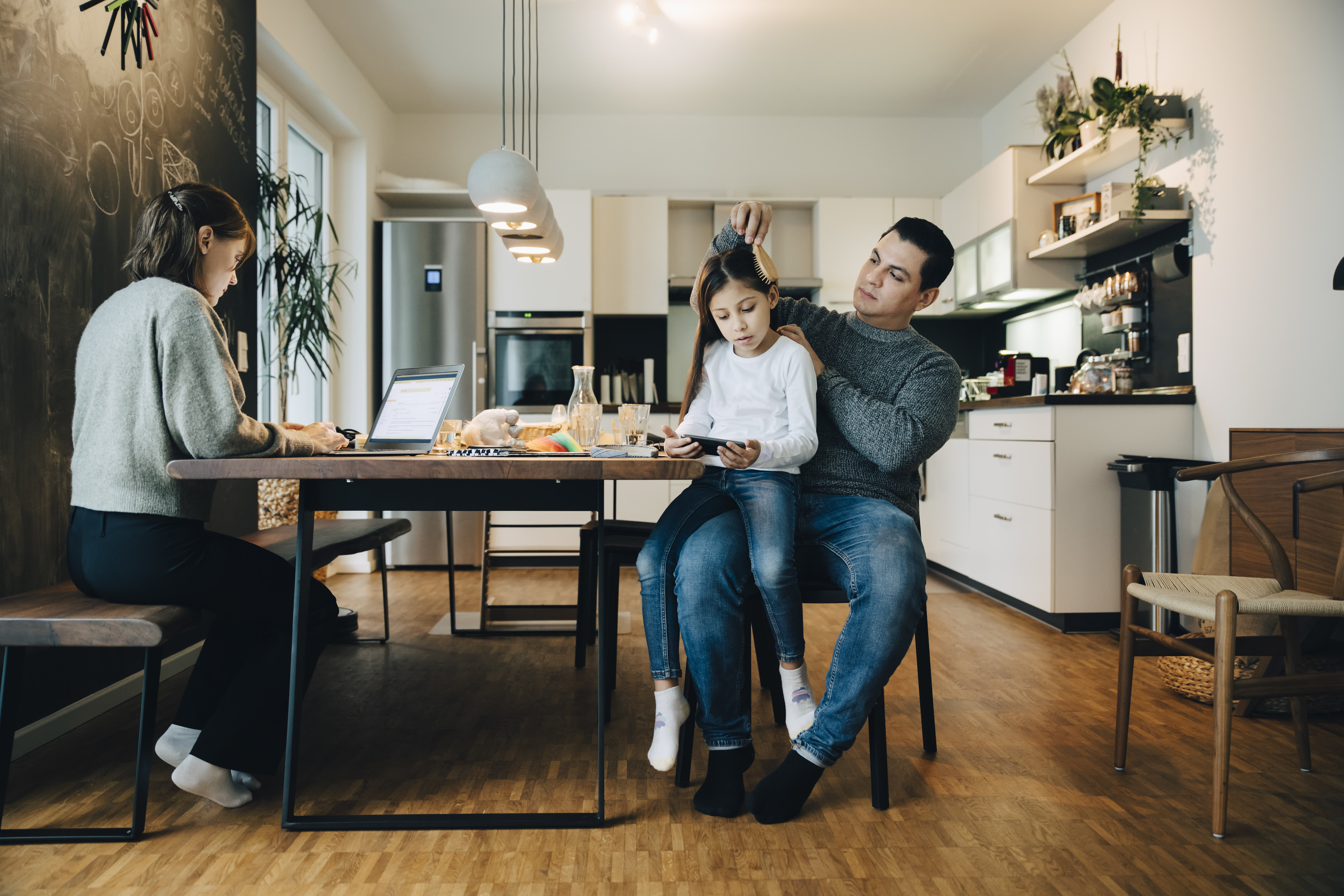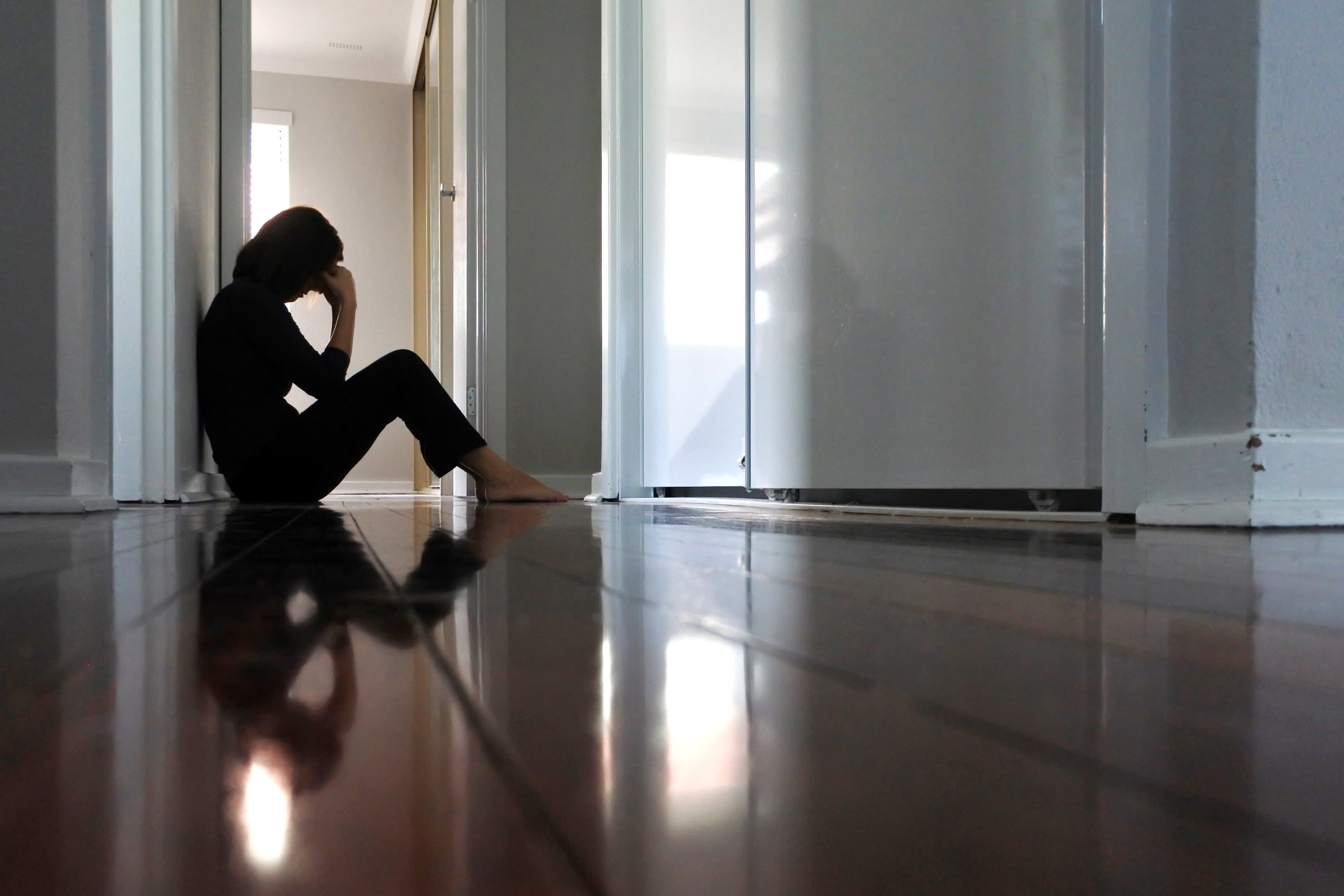The COVID-19 pandemic isn't over just yet, but with the June 15 reopening day that dropped many state restrictions, California is on the way out.
Despite the joy of that victory, 21% of U.S. adults reported feeling "high levels of psychological distress" as a result of the pandemic, according to a March 2021 report from the Pew Research Center.
According to the California division of the National Alliance on Mental Illness, the organization "reported a 65% jump in HelpLine calls, callbacks and emails" between March 1 and April 30 of 2020, when compared to figures from the same time span in 2019.
The past 15 months have forced people worldwide to confront job losses, economic instability, disability, illness and millions of deaths. That unprecedented mental load is in addition to the stress of political, environmental and social upheavals that occurred in the same time period.
Get San Diego local news, weather forecasts, sports and lifestyle stories to your inbox. Sign up for NBC San Diego newsletters.
Even as Californians are now able to enjoy indoor dining and the ability to go without a mask in many situations, some people may still feel anxious about their safety — even if they know they're protected with a vaccine.
According to Dr. Bridget Callaghan, UCLA assistant professor of psychology and director of UCLA’s Brain and Body Lab, that hesitation is normal.
The changes everyone had to make at the beginning of the pandemic, such as bringing a mask everywhere and washing and sanitizing hands more often, were "very habitual," Callaghan said.
The process of habit-forming is part of why people may have initially done things like forgotten a mask before heading back home to grab one — now, the "habit" is normal life.
“It takes a while to adjust to things, and we’ve been living with the pandemic and the fear of the virus... for such a long time," Callaghan said.
Intellectually, people may know their vaccination means little to no risk of getting or spreading COVID-19, but habitually and emotionally, it's been a worry for a long time. It's natural and expected "to feel weird" going back to normal, Callaghan said, even in cases where you and the people you're seeing are fully vaccinated.
Furthermore, not everyone will feel the same about the impacts of the pandemic. Where an introverted person may have been relieved to have more time alone at home, an extroverted person may have felt isolated, and a person who lost loved ones may have felt intense grief.
“It’s impacted people in an enormous variety of different ways," Callaghan said, and a variety of reactions are normal.
Difficulties in adjusting may, for some people, be accompanied by new or heightened stresses from everything that happened during the pandemic.
"Stress is such a funny thing," Callaghan said. "Stress in itself can just impair our capacity to deal with other things."
A little bit of stress can be a good thing, she said. When it comes to something like a looming deadline, the body's response to short-term stress is to release hormones like cortisol, which wake you up and equip you to handle the situation at hand.
But long-term, chronic stress from an ongoing crisis - like a global pandemic - can essentially "max out" the brain's ability to deal with new challenges.
"Day after day… it just eventually wears us down, to the point that we’re not able to cope with things properly," Callaghan said.
That's why everyday relationship, family, money or job problems that would have been manageable before may feel completely overwhelming in the wake of the pandemic.
Beyond chronic stress, more people may be experiencing symptoms of mental illness. As noted in the Pew Research study, "fear and isolation associated with the pandemic have been responsible for a surge of anxiety and depression over the past year."
And in Los Angeles County Department of Mental Health resources for the pandemic, it's expected for people to feel "general apprehension, anxiety and fear of the unknown," "sadness, loss of interest, hopelessness and apathy," and "existential stress, self-doubt or thoughts and feelings related to decreased sense of self-worth," among others.
The symptoms of mental illness can vary, with "different things for different disorders," Callaghan said.
For anxiety, common symptoms include "feeling kind of panicky" or "afraid for no reason," or feeling "nervous or jittery or jumpy."
If something traumatic happened to an individual as a result of the pandemic, they may experience symptoms of PTSD such as "repeated intrusive thoughts" or "distressing dreams" about the event, Callaghan said.
Depression, on the other hand, can make people feel "really low in motivation,” Callaghan said. People with depression may eat too much or not enough, sleep too much or not enough, and feel hopeless about the future, as though nothing will be the same or good again.
Those symptoms can sound like broad feelings that everyone experiences, but it verges into the territory of mental illness requiring attention when it affects daily life in a negative way, according to Callaghan.
“Really, it becomes an issue when it’s an issue for you," she said. "So if you’re experiencing these things and it’s preventing you from going about your daily life," you should seek help.
Someone in acute, immediate distress who wishes to harm themselves or others can call a hotline, such as the LA County Crisis Line at 1-800-854-7771, or the National Suicide Prevention Lifeline at 1-800-273-8255. Those who do not wish to call can text "LA" to the LA County Crisis Line Text at 741741.
But someone who simply feels overwhelmed can try and find a therapist to help work through the stresses and grief they've been feeling during the pandemic.
“The first thing I would say is definitely to get professional help," Callaghan said. "If you feel impaired… the best thing to do is to reach out."
Anyone who feels overwhelmed by new mental health problems can go to their primary care physician, local psychiatric society, medical school or community mental health center and get a referral to see a psychotherapist.
And for people who are coping but may like some extra, non-professional support, Callaghan said, reaching out to a friend or family member and rebuilding your supportive social network may help.
“It’s really good to be open and upfront with people," she said, and discussing pandemic stress with someone else may reveal that you're not the only one feeling that way.
“There’s a doorway where those feelings are reciprocated.”
More than anything, when it comes to the psychological impact of the pandemic, Callaghan said, "it’s really important at this time in particular to be really gentle with ourselves.”
"It’s going to take a long time to adjust" to the not-quite-post-COVID period, she said. “It’s not just going to go back to normal easily.”




